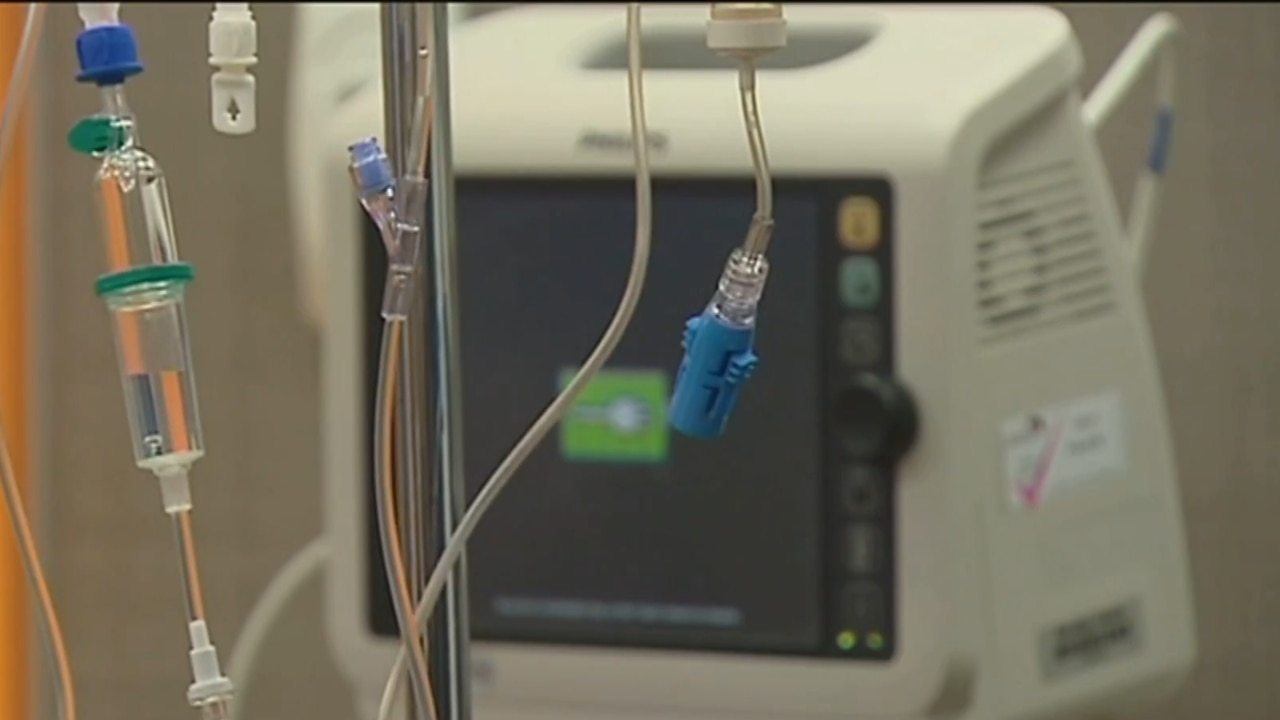Aussie mum Nikki Wagner’s insane $250,000 blood cancer bill
Blood cancer patients are being forced to sell their homes to pay for treatment — as one mum estimates she’s lost about a quarter of a million dollars.

Blood cancer patients are being forced to sell their homes and cars to pay for lifesaving treatment amid soaring medical costs, as one woman estimates she has lost more than a quarter of a million dollars since being diagnosed.
Nearly half (43 per cent) of Australians diagnosed with blood cancer were forced to front out-of-pocket treatment costs in the hundreds and thousands, a heartbreaking new report from the Leukaemia Foundation has revealed.
One such patient was NSW mum Nikki Wagner, 58, who shouldered a staggering financial hit after being diagnosed with myeloma about four years ago.
What she assumed was a workplace back injury landed Nikki in hospital in late 2018 — but doctors instead discovered an aggressive and cancerous tumour eating into the base of her spine.
Have a similar story? Get in touch — chloe.whelan@news.com.au

She was thrust into treatments that included recurrent rounds of radiation, chemotherapy and a stem cell transplant.
Tallying up the costs — including doctor’s visits, mobility aids, rehabilitative support and time off work — Nikki estimated she had suffered a financial hit of between $250,000 and $500,000.
One medication alone, which Nikki affectionately called her “princess pills”, cost an eye-watering $250 per tablet, or $18,000 for the whole round of treatment.
Crowd-funding from family, friends and strangers, as well as support from the Leukaemia Foundation, helped to foot the bill.
“It snowballs,” Nikki explained to news.com.au.
“In the beginning, I was thinking, I’ll just do whatever it takes. But then you see a doctor, and you have to see another one. You have to continue with pathology, X-rays, MRI, physio. Then you add in a psychologist, and front most of the cost there. You visit an exercise physio to help restore your movement.”

Other participants in the Leukaemia Foundation study were forced to sell assets such as their house or car, or turned to charity food boxes. Most dipped into their savings accounts to cover the cost.
The report also painted a dismal picture of the impact of blood cancer on employment.
Some 42 per cent of patients had to take more than three months off work during treatment, with varying degrees of sick pay. Another 30 per cent had to leave their jobs, and half hadn’t yet been able to return to work.
Nikki was forced to step back from her full-time teaching role after she was diagnosed, a decision she described as “heartbreaking”.
“After 30-something years, I was in my prime. I was enjoying it more than I ever had,” she said.

“My employment was compromised and I knew I wouldn’t be able to return to that. It was scary thinking about the future, because we’ve got a home loan we can’t pay off and my husband doesn’t earn a hell of a lot.”
As Nikki shoulders the ongoing costs of treatment — which will continue for the rest of her life — her school created a wellbeing role for her, but the hours and pay don’t compare to those of her former position.
The prevalence of blood cancer is staggering, with more than 19,000 Aussies expected to be diagnosed this year.
Still, Nikki said many Australians assumed living with cancer was cost-free — and, in fact, many more didn’t think about the financial burden at all.
“I don’t think many people think too deeply about it,” she said.
“They think, ‘You’ve got cancer, poor you,’ and that’s it … The stress of coping with financial pressure is a hidden unknown. And you’re already whining about your health, so you don’t also want to whine about the financial stuff.”

The flow-on effects meant that Nikki’s adult children, too, had been impacted.
“We’re not getting ahead, and we’re not supporting our sons like we wanted to,” Nikki said.
“Both my husband and I have very strong skills in our professions. We want to keep being productive and contributing. I could not sit back and do nothing.”
Myeloma has a life expectancy of about six years, and so Nikki and her husband Scott took on one welcome financial burden — ticking off some major bucket list items.
“We’ve chosen to do some of our dream trips away, thinking I mightn’t be here in two years,” she said.
“Scott used up some of his long-service leave, and we went and saw Perth in a motorhome. It was beautiful.”
Have a similar story? Get in touch — chloe.whelan@news.com.au
If you’d like to support the Leukaemia Foundation, which helped to lessen some of Nikki’s financial burden, you can do so here.






